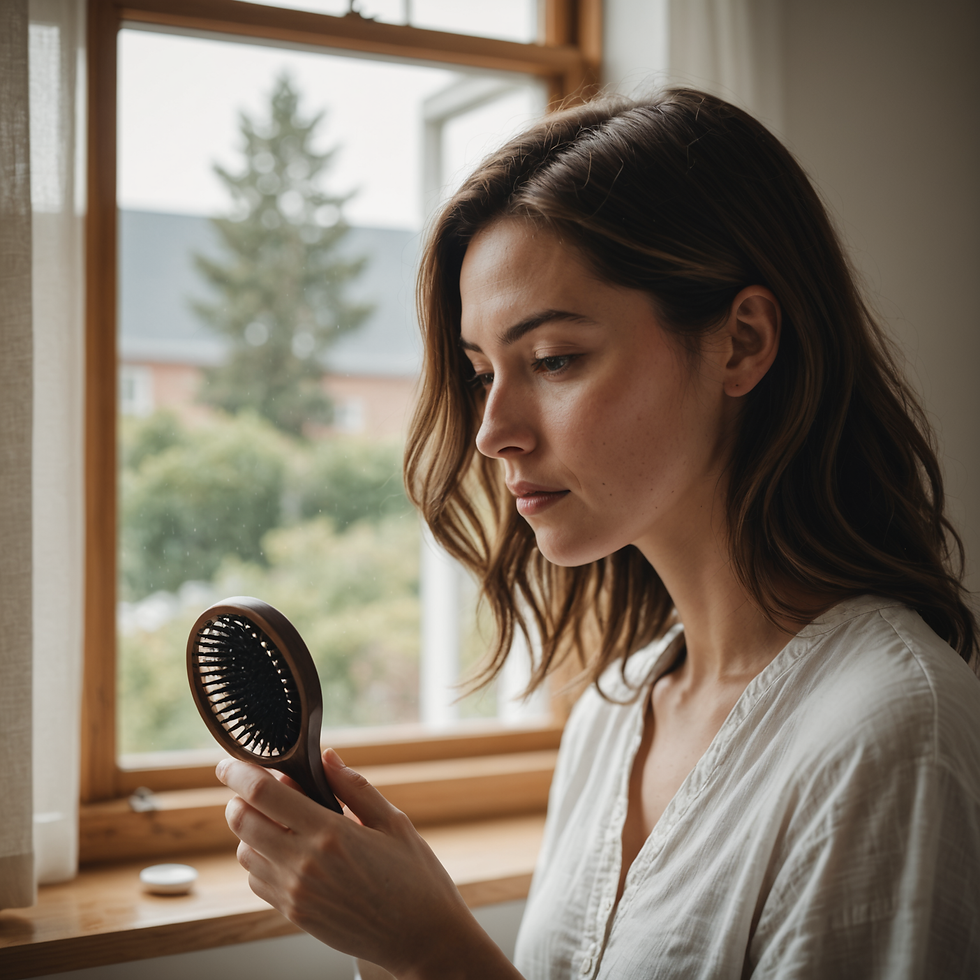Targeted Treatments for Hair Health and Regrowth
- reception727
- Oct 13
- 4 min read
Hair health and regrowth are concerns for many people experiencing thinning, hair loss, or scalp issues. Fortunately, advances in dermatology and cosmetic treatments have introduced targeted therapies that can help restore hair vitality and promote new growth. This article explores some of the most effective treatments available today, providing practical insights and recommendations to help you make informed decisions about your hair care journey.
Understanding Hair Regrowth and Its Challenges
Hair regrowth is a complex biological process influenced by genetics, hormones, nutrition, and overall health. Hair follicles go through cycles of growth (anagen), rest (telogen), and shedding (catagen). Disruptions in this cycle can lead to hair thinning or loss. Common causes include androgenetic alopecia (pattern baldness), stress, nutritional deficiencies, and scalp conditions like dandruff or psoriasis.
To support hair regrowth, it is essential to address the root causes and adopt treatments that stimulate follicle activity and improve scalp health. This often involves a combination of topical products, lifestyle changes, and professional therapies.

Key Factors Affecting Hair Regrowth
Genetics: Family history plays a significant role in hair loss patterns.
Hormones: Imbalances, especially in androgens, can shrink hair follicles.
Nutrition: Deficiencies in vitamins like biotin, iron, and zinc impair hair growth.
Stress: Chronic stress can push hair follicles into the resting phase prematurely.
Scalp Health: Inflammation or infections can damage follicles and hinder growth.
Effective Treatments for Hair Regrowth
Several treatments have shown promising results in promoting hair regrowth. These range from light therapy to advanced medical procedures. Here are some of the most popular and effective options:
Microneedling
Usage: For optimal hair growth results, microneedling should be performed every 1-4 weeks, depending on needle length and individual skin sensitivity
2. Nutritional Supplements
Hair health depends heavily on adequate nutrition. Supplements containing biotin, vitamin D, iron, and omega-3 fatty acids can support hair regrowth, especially if dietary intake is insufficient.
Recommendation: Consult a healthcare provider to test for deficiencies before starting supplements.
Tip: Incorporate a balanced diet rich in leafy greens, nuts, and lean proteins.
3. Led Light Therapy
LED light therapy works by emitting specific wavelengths of light, usually in the red and near-infrared spectrum, that penetrate the scalp to reach the hair follicles. This light energy is absorbed by the cells in the follicles, stimulating blood flow and increasing oxygen delivery, which is essential for healthy hair growth. The boost in circulation helps to “wake up” dormant follicles, allowing them to return to their natural growth cycles.
Benefits: Painless, safe, and can be combined with other treatments. light therapy is its ability to slow down and even reverse hair loss.
Frequency: Typically used 3-4 times per week for 15-20 minutes.
Effectiveness: Studies show increased hair density and thickness after several months.
Mesotherapy
Mesotherapy involves injecting a cocktail of vitamins, minerals, amino acids, and sometimes medications directly into the scalp to nourish hair follicles and improve circulation.
Pros: Targets specific nutrient deficiencies; can be customized for individual needs.
Cons: May require maintenance treatments; some patients experience mild discomfort.

Lifestyle Changes to Support Hair Health
In addition to professional treatments, adopting healthy habits can significantly improve hair health and support regrowth efforts.
Maintain a Balanced Diet
Eat foods rich in vitamins A, C, D, E, zinc, iron, and omega-3 fatty acids.
Include protein sources like eggs, fish, and legumes to provide keratin building blocks.
Manage Stress
Practice relaxation techniques such as meditation, yoga, or deep breathing.
Ensure adequate sleep to allow the body to repair and regenerate.
Avoid Damaging Hair Practices
Limit heat styling and harsh chemical treatments.
Use gentle shampoos and conditioners suited for your hair type.
Avoid tight hairstyles that pull on the scalp.
Scalp Care
Regularly massage the scalp to improve blood circulation.
Keep the scalp clean and free from buildup or dandruff.
Emerging Innovations in Hair Regrowth
Research continues to advance in the field of hair restoration, with new treatments on the horizon.
Stem Cell Therapy: Using stem cells to regenerate hair follicles shows promise but is still experimental.
Hair Cloning: Scientists are exploring ways to clone hair follicles for transplantation.
Advanced Topicals: New formulations with peptides and growth factors aim to enhance follicle stimulation.
Staying informed about these developments can help you choose the best options as they become available.
Taking the Next Step in Your Hair Regrowth Journey
Choosing the right treatment for hair health and regrowth depends on your specific condition, goals, and lifestyle. Consulting with a dermatologist or hair specialist can provide personalized recommendations and ensure safe, effective care.
Whether you opt for light therapy, microneedling or mesotherapy, or lifestyle adjustments, consistency and patience are key. Hair regrowth is a gradual process, but with the right approach, you can restore confidence and enjoy healthier, fuller hair.
Explore professional options such as mesotherapy for hair to give your scalp the targeted nourishment it needs for optimal regrowth. Combining treatments with healthy habits will maximize your results and support long-term hair health.





Comments